
- Home
- Research
- Find research
- From South Africa to Sweden: Collaborative Research Efforts Improving Pregnant Women's Health
From South Africa to Sweden: Collaborative Research Efforts Improving Pregnant Women's Health
In the bustling Tygerberg University Hospital in Cape Town, a dedicated research team led by Lina Bergman, is on a mission to improve the lives of women facing the challenges of pregnancy-related complications. Particularly, the team studies preeclampsia, a condition with far-reaching effects on both mother and baby.
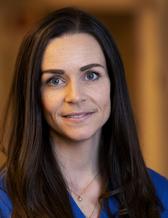
Lina Bergman, associate professor at the university of Gothenburg and Stellenbosch University and senior consultant in obstetrics and gynecology at the Sahlgrenska university hospital, is heading the research with teams both in South Africa and Sweden. Together with professor Catherine Cluver at Stellenbosch University, they are leading the South African team at Tygerberg University Hospital.
A dynamic team close to the patients
The research office in Cape Town is located at the hospital just next to the labor ward and the obsteric high care unit, in proximity of the patients.
“We have a big population of women here that are admitted with preeclampsia, and over the last five years we have included almost 2000 women in our biobank and speeding up the pace now when we have been able to extend our team with more staff.” Lina said.
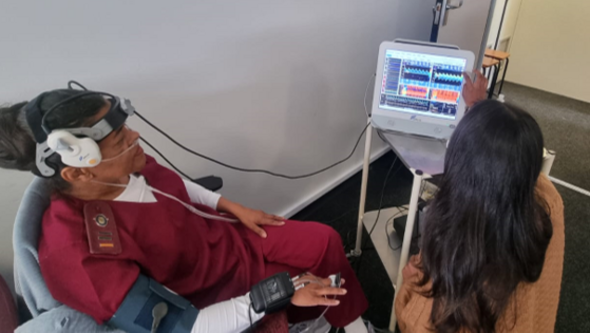
“This and other funding are enabling research that otherwise would not have been possible to conduct. It is quite challenging to find funding locally in South Africa.” Lina said.
The research focuses partly on intervention studies were randomized control trials are used to try to delay the progress of the disease, decreasing the burden of preterm birth that is associated to the disease. The team also run observational studies investigating pathophysiology, prediction, and understanding of the disease.
“At other sites, for example in Sweden, women with these complications are “too few” which off course is good for the women, but hard for research. At Tygerberg, we find the complications that we really need to prevent such as eclampsia (seizures), pulmonary edema (fluid in the lungs), and kidney failure, which all can occur in women with preeclampsia.

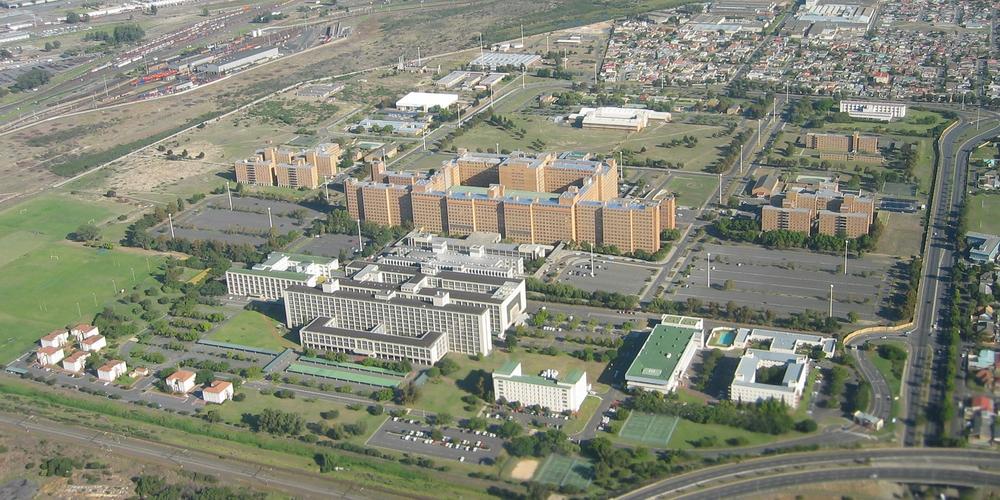
Reaching out to the women

Jacqui Visser and Eloise Playandi are both research nurses and midwives in the team. Both have a passion for patient care and being at the frontline, enrolling patients and collecting vital data for the studies.
“We interact with the patients on a daily basis, and we are the primary point for actually getting the patients enrolled, taking the samples, and then following up the data as well.” Jacqui said.
To reach out to the women, the team do rounds every day in the maternity and labour wards, checking up on every patient. 80% of the women admitted at Tygerberg will be admitted with a high blood pressure, which is a typical sign of preeclampsia.
“We don’t just take blood samples, we build relationships with the patients, spend some time next to the bed, talking to them and educating them on what is happening so they can understand that it's not their fault that they're here.”
Biobank and prediction of complications
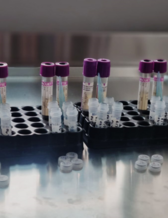
Sonja Schell is research unit coordinator, supervising the quality of the ongoing projects. Sonja coaches the team members and is, among other things, responsible for the correctness of the captured data.
"It's a privilege for me to be a part of this team. We are often working with very ill people, women from disadvantaged backgrounds, and we want to make a difference in their lives." Sonja said.
One of the major ongoing projects is developing the biobank that includes all the women with preeclampsia admitted to Tygerberg.
“The biobank data can be used to follow up on previous patients, but also to try to predict what might happen to the mother as well as the fetus when a new patient is enrolled. Prediction is very important because some of our women can die from the disease if they are not treated quick enough with accurate measures.”
PhD project to better understand the disease
Part of the team is also Karusha Knipe, obstetrician gynecologist and PhD student. Through her research project, Karusha is challenging long-held assumptions and paving the way for more effective treatments.
“Preeclampsia usually causes high blood pressure and organ failures, affecting for example the heart, the lungs, the brain, or the fetus. In my research project, I am focusing on how the maternal brain is affected and particularly how cerebral complications such as seizures occur.” Karusha explained.
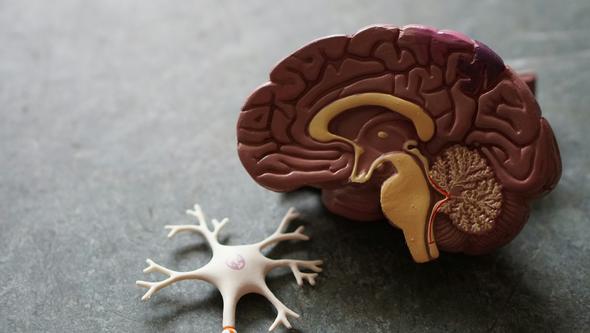
Previously it was thought that the complications were connected to the degree of the hypertensive episodes, and the focus of managing the disease was to try and lower the blood pressure through medication.
“What we've noticed over the years is the fact that women with preeclampsia are having seizures and brain edema regardless of the degree of hypertension. So, we are now understanding that it’s a systemic disease of the changes of blood-flow in all the vessels of the body, and the individual’s auto-regulating capacity is key element. What we are trying to figure out now is how the cerebral autoregulation in preeclampsia works, how our current medications affect the cerebral autoregulation and if we can find new treatment targets to predict the maternal brain.”
Handling the data with care
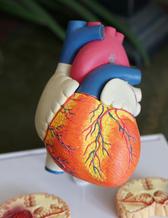
With an influx of data from the research projects, there's a great need to streamline data collection and enhance database functionality. Lucy Brink, a dedicated PhD researcher within the team, shoulders much of this responsibility.
“Ensuring the accuracy and reliability of the data is vital to the success of our research. Maintaining data quality and integrity is therefore a top priority for us.”
To address these challenges, Lucy is leading and implementing several key enhancements to the database, including branching data, data type validation, required fields, automated data processing, and improved reporting.
“These enhancements are designed to streamline our data collection processes, adding the overall quality and integrity of our research data. My goal is to facilitate more efficient and reliable research outcomes together with the team so it can be of best use for the research on preeclampsia and women’s health.” Lucy said.

Collaboration for global benefit
Through collaboration with colleagues in Gothenburg, the team is forging connections and sharing insights toward better outcomes for women everywhere.
“We collaborate on all levels, connecting research staff, PhD students as well as coordinators and other parts of the teams. The research questions and the setup of the studies are quite similar, although the environment and the patients are different. We back up each other and use each other’s competence and local knowledge so we can carry out the best possible research with the available resources. We are for example now introducing treatment trials at Sahlgrenska university hospital in Gothenburg based on the results from the South African context.” Lina Bergman concluded.


